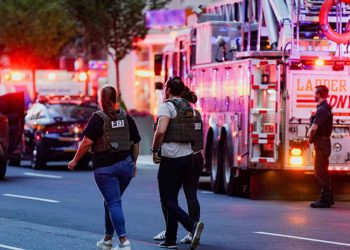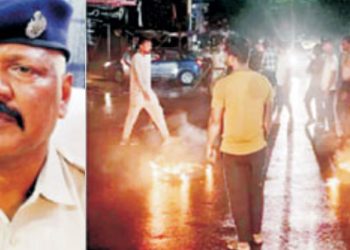NEW YORK: A man convicted of raping a teenage girl at gunpoint in Greenburgh, New York nearly 50 years ago has been exonerated.
DNA testing confirmed that 72-year-old Leonard Mack had not committed the assault and identified the actual assailant.
Westchester District Attorney Mimi Rocah apologized to Mack for the “incalculable damage and the collateral consequences” that the failures of prosecutors and the criminal justice system brought on him.
Rocah joined Mack’s lawyers from ‘The Innocence Project’ – a nonprofit legal organization working to exonerate individuals wrongly convicted – to ask state Supreme Court Justice Anne Minihan to vacate the 1976 conviction, for which Mack spent nearly seven years in state prison.
Minihan said it was the honour of her career to do so, even coming off the bench to shake his hand and give him a hug. “This is your day. You’ve waited much too long for it. In what we do the stakes are very high and it’s important to get it right,” Minihan said.
Mack said erasing the conviction would let him lead a life he was always meant to enjoy, free of the stigma that dogged him for decades.
“I never gave up hope; I never threw in the towel. I know it’s here, but I just can’t believe it’s actually happened,” Mack shared with local media before proceedings.
“For 48 years, 48 long years, I walked around society being labeled a rapist when I knew I didn’t do it. Now that this day is here I just thank God. I thank God that finally the truth came out. Now I can truly say that I’m free. Not when I got out of Sing Sing but when I walk out of here today,” Mack said.
“Free at last! Free at last! Thank God almighty, I’m free at last.” Leonard Mack, exonerated after 47 years. This is the longest wrongful conviction overturned by DNA in U.S. history. pic.twitter.com/0rvYk3YMMd
— Innocence Project (@innocence) September 5, 2023
How was Mack convicted and exonerated?
In the summer of 1975, Mack was a 23-year-old Vietnam War veteran with a 2-year-old daughter and an infant son. One night in May of 1975, two teenage girls were walking home from Woodlands High School through a wooded area about 25 miles northeast of Manhattan.
They passed a man walking toward them when he doubled back and demanded they not turn around and threatened to kill them. He held them at gunpoint, used their clothes to gag them and bind their ankles and wrists and raped one of them twice before fleeing.
The girl who was raped ran home, where her sister called police and she was taken to a hospital. The other girl ran to another school where a staff member also called the police.
The description the girls gave the police at the time was of a Black man wearing a brimmed hat and an earring. Mack was pulled over by a Westchester County Parkway police officer more than two hours later, about 5 miles from the scene.
Police found a gun in the trunk of his car after police searched his vehicle. The girl’s friend was taken to Mack’s location and asked her whether Mack was the assailant. He was the only one there in handcuffs surrounded by police officers.
She said he was the assailant. She told detectives that Mack’s clothes did not match those of the rapist. Officers provided Mack different clothes and she then said he was the one who attacked them.
The victim had not clearly seen her attacker but did claim to have recognized his voice when police told him to speak the assailant’s threat as she watched behind a one-way mirror at headquarters.
Police ignored his protestations that he had been with his girlfriend that afternoon and with mechanics discussing car repairs and had nothing to do with the rape. Most of the identifications were ruled inadmissible at trial the following year and jurors were never made aware of the improper identifications.
Criminal proceedings did not yet rely on DNA evidence. A rebuttal witness from the county forensics lab was called by the prosecution, who incorrectly suggested that the victim might have been the source of the biological evidence.
Jurors relied on testimony and identifications made by the victims to convict Mack of first-degree rape and weapon possession. He was sentenced between 7 1/2 to 15 years in prison in April of 1976.
He remained on parole until the mid-1980s, working mostly as a groundskeeper and caddie before leaving for South Carolina, where he had lived the first 10 years of his life and still had family.
In 2020, Mack sought the assistance of The Innocence Project who asked the Westchester DA’s Conviction Review Unit to assist in 2022 after their own internal review of the case.
New DNA testing allowed technicians at the county forensics lab to rule out Mack as the source of the stains this summer. When a sample was submitted to a DNA database, a match resulted for a man convicted for a Queens rape two weeks after the one in Greenburgh.
The man confessed to the 1975 Greenburgh rape but cannot be prosecuted for it because the statute of limitations in place at the time has expired.
Mack said he remains hopeful that he can pursue work in prison ministry, an avenue he was long rejected for because of the nature of his conviction.




































